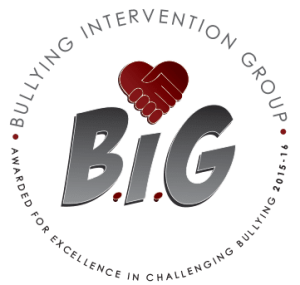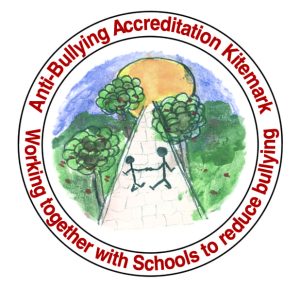Children are growing up in a world with a bigger range of online activities than ever before and it is sometimes very hard for both children and adults to know how to stay safe.
Parents/Online Safety Information
Most parents will want to reduce the risks to their children, and remembering to set parental controls can reduce the risks to children, and reduce the risk to parents when children accidentally spend money online etc. The internet matters website explains this quite well. Online safety is not just about protecting children from some of the dangers of the internet – it is also about helping them manage their use of technology and most of the parental controls allow adults to set a maximum time for the use of a device or app.
Internet Matters is a site paid for by many British companies. It has a lot of good advice on adding parental controls as well as on most aspects of online safety. Parental controls will only help keep children safe. The best safety feature that a child has is their parent or carer. Take the time to talk to your child about the apps and games they are using and don’t be afraid to say no sometimes!
The range of online apps changes on a regular basis and the NSPCC have a site called Net Aware. This provides unbiased up-to-date information on current apps and sites along with advice to parents about dealing with issues.
The NSPCC have teamed up with O2 to provide advice to parents and have a free helpline on 0808 800 5002. They will also give support in any O2 shop – you do not have to be an O2 customer.
ThinkUKnow is the website aimed at children and their parents from the National Crime Agency. It has lots of useful suggestions and advice on how to report issues. It also has lots of games and activities including Jessie and Friends for the younger children and Band Runner for the older ones.
For the youngest children being tricked into sharing pictures can be an issue. LGfL have produced a lovely free video which has some great advice and a very catchy song!
Many children will at times suffer from online bullying. It is really important that they have someone they can talk to and know that it is not acceptable. Most apps and sites will have systems inn place that allow bullying to be reported. Your child’s school may be able to help.
Children can call Childline on 0800 1111 for advice on anything that is worrying them.
Finally since 2015 is has been a criminal offence for an adult to send a message with sexual content to a child (This is Section 67 of the Serious Crime Act 2015). If you are concerned that this might have happened please contact The Police without further using the device. This will help ensure that evidence can be preserved. The Police can be contacted by phone or from the ThinkUKnow website.
Important e-Safety Information
The school will help children to learn about staying safe online, but recognises that the primary responsibility for online safety at home lies with parents and carers. Your help is now needed to help your children adopt safe use of the digital technologies at home.
We have recently been made aware of concerns relating to “a challenge” which is a form of cyberbullying that spreads through social media and phones mostly using WhatsApp. Phone users are enticed to contact a user through WhatsApp where they receive graphic threats from the user and are instructed to perform a series of dangerous tasks. Despite claims that the phenomenon was reaching worldwide proportions in July 2018, the number of actual complaints is relatively small and no UK police force has confirmed anyone was actually harmed. The UK Safer internet centre has been aware of this as an issue for UK schools over a year.
Useful Downloads for Parents & Pupils
Adult Acceptable Use Policy 2023
Code of Conduct
e-Safety for Parents
e-Safety Writing
ESS e-Safety Factsheet
Golden Rules
Online Blackmail
Parents e-Safety Presentation
Pupil Agreement
Supporting Young People Online
Website Links – e-Safety
Advice Guides for Parents
Guide to building cyber resilience
Guide to combat online bullying
Adobe Reader
You may need a product like Adobe Reader (free download) to view our PDF documents on our website.




















